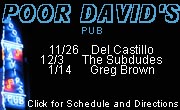As an advocate of journalistic transparency, I must tell you at the start that I am not an objective reporter here. Barry Gremillion is a dear friend of mine and we have been creative colleague for many years. I’m an unabashed fan of his music. But I’m not writing as a music critic or even as a musician; I’m writing as a poet and social critic as always but if you have trusted the observations of The Poet’s Eye in the past, please indulge me now.
Mr. Gremillion has only recently issued his latest contribution to contemporary American music, a trilogy of compositions aptly entitled The Obama Trilogy. The three choral and instrumental pieces were inspired by the speeches of Barak Obama. Gremillion’s lush and arresting compositions use the recorded words of the President as scenic touchstones to his richly narrative and textural music.
Help Me Believe, which was adapted from Obama’s Tuscon speech consoling the Nation after the tragic shootings there in January, is solemnly rendered for a capella chorus. Like the speech that inspired it, the quasi-Gregorian prelude sets the perfect tone of reverence for the rest of the trilogy.
Relentless, the centerpiece of the trilogy, is also my personal favorite of the three sections. Musically it is stirring as Stravinski, stark as Glass, evocative as Copeland. The 16 minute piece is brave and satisfying and engaging from start to finish. It is written as solidly as Zappa’s best orchestral works. As an observer of Gremillion’s work for some forty years, it is clear to me that this piece represents the creation of an artist who has hit his relaxed stride as a significant voice in modern American composition.
Selmiyya is the most challenging of the three. It expresses a palpable tension between Mid-Eastern and Western voices, modernity pulling against tradition, the seething groan of liberty waiting to be born is overflown by the modulated voice of calm hope and reason singing, ‘Selmiyya,’ the chant of peace used by the Egyptian protestors this year as quoted in Obama’s 2011 speech, The piece evokes the din of revolution that we hear today in capitols across the Mid-East and Northern Africa.
Besides being a joy for the ears and the mind and the imagination, Gremillion’s trilogy is a significant and encouraging statement about both its subject and the vitality and depth of American music. Before President Obama gave his Jan. 12 address in Tuscon, the local symphony orchestra played Copeland’s Fanfare for the Common Man. This turgid but moving work was an appropriate prelude for Obama’s speech and it strikes me that Gremillion’s composition is the perfect epilogue. I’m also struck by the audacity of the composer’s ambitious undertaking. It reminds me of Whitman’s memorable songs of celebration for President Lincoln. Only a poet as vast as Whitman could have treated the subject with the sincere dignity it deserved. The same is true in the case of the Obama Trilogy. I’m sorry, but Eminem could not have pulled this off, folks, even if Diddy did the production.
It has been noted that writing about music is akin to dancing about architecture, so before I further demonstrate this truth, you can listen to Relentless from the Obama Trilogy for yourself by clicking HERE. The work speaks for itself. Gremillion’s remarkable composition and production skills are evident and he is assisted by a cadre of wonderfully talented and professional musicians and singers. The Poet’s Eye knows an enjoyable way to spend half-an-hour when it sees one. If I cannot write with absolute authority about contemporary chamber music in its particulars, I can assert that this piece of music should establish Gremillion as one of the most important composers in American music today.



